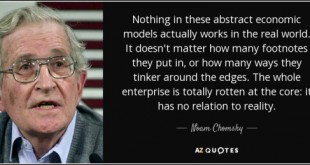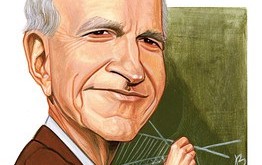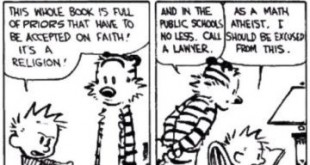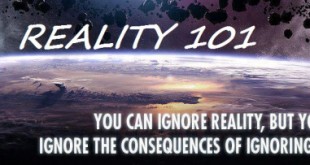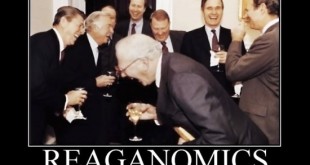Krugman on models (II) Last year Alex Rosenberg — chair of the philosophy department at Duke University and renowned economic methodologist — had an interesting article on What’s Wrong with Paul Krugman’s Philosophy of Economics in 3:AM Magazine: Krugman writes: ‘So how do you do useful economics? In general, what we really do is combine maximization-and-equilibrium as a first cut with a variety of ad hoc modifications reflecting what seem to be empirical regularities about how both...
Read More »Bad taste in mouth modeling
Bad taste in mouth modeling How do mainstream economists react when confronted with the monumental absence of empirical fit of their macroeconomic models? Well, they do as they always have done — they use one of their four pet strategies for immunizing their models to the facts: (1) Treat the model as an axiomatic system, making all its claims into tautologies — ‘true’ by the meaning of propositional connectives. (2) Use unspecified auxiliary ceteris paribus assumptions, giving all claims...
Read More »Does more government help or hurt?
Does more government help or hurt? [embedded content] Through history public debts have gone up and down, often expanding in periods of war or large changes in basic infrastructure and technologies, and then going down in periods when things have settled down. The pros and cons of public debt have been put forward for as long as the phenomenon itself has existed, but it has, notwithstanding that, not been possible to reach anything close to consensus on the issue — at least not in a long...
Read More »Probabilistic irrationalism
The initial choice of a prior probability distribution is not regulated in any way. The probabilities, called subjective or personal probabilities, reflect personal degrees of belief. From a Bayesian philosopher’s point of view, any prior distribution is as good as any other. Of course, from a Bayesian decision maker’s point of view, his own beliefs, as expressed in his prior distribution, may be better than any other beliefs, but Bayesianism provides no means of justifying this position....
Read More »DeLong, Summers & Krugman on models
DeLong, Summers & Krugman on models Larry Summers, Brad DeLong, and Paul Kugman are having an extended discussion on the role of models in economics on their blogs this week. That’s good. Since the model is the message in economics today, that is actually the most important discussion possible to have in economics. Krugman is arguing that models are not ‘always the right guide for policy, but still necessary for disciplining our policy preferences.’ According to Krugman, ‘the...
Read More »Joke of the century
Joke of the century Inequality continues to grow all over the world. In case you think that it’s different in my own country — Sweden — you should take a look at data from Statistics Sweden and this (Swedish) video. The Gini coefficient is a measure of inequality (where a higher number signifies greater inequality) and for Sweden we have this for the disposable income distribution: Source: Statistics Sweden and own calculations What we see happen in the US, the UK, and Sweden,...
Read More »Calibration — how to perform decades of scientific fraud
Calibration — how to perform decades of scientific fraud One may wonder how much calibration adds to the knowledge of economic structures and the deep parameters involved … Micro estimates are imputed in general equilibrium models which are confronted with new data, not used for the construction of the imputed parameters … However this procedure to impute parameter values into calibrated models has serious weaknesses … First, few ‘deep parameters’ have been established at all … Second,...
Read More »Balanced budget — an old fashioned religion
Balanced budget — an old fashioned religion I think there is an element of truth in the view that the superstition that the budget must be balanced at all times [is necessary]. Once it is debunked, [it] takes away one of the bulwarks that every society must have against expenditure out of control. There must be discipline in the allocation of resources or you will have anarchistic chaos and inefficiency. And one of the functions of old fashioned religion was to scare people by sometimes...
Read More »The non-existence of economic laws
The non-existence of economic laws In methodischer Hinsicht verdankt das ökonomische Erkenntnisprogramm ohne Zweifel dem Einfluss der klassischen Physik eine wichtige Komponente, nämlich den Gedanken, dass die sozialen Phänomene ebenso von Gesetzmässigkeiten beherrscht sind wie die Naturerscheinungen und dass es daher angezeigt ist, solche Gesetzmässigkeiten zu suchen und theoretisch in ähnlicher weise zu kodifizieren, wie Newton das für die Gesetze der Mechanik in seinem System geleistet...
Read More »Think you’re rational? Better think twice!
Think you’re rational? Better think twice! My friend Ben says that on the first day he got the following sequence of Heads and Tails when tossing a coin: H H H H H H H H H H And on the second day he says that he got the following sequence: H T T H H T T H T H Which day-report makes you suspicious? Most people I ask this question says the first day-report looks suspicious. But actually both days are equally probable! Every time you toss a (fair) coin there is the same probability (50 %) of...
Read More » Heterodox
Heterodox

